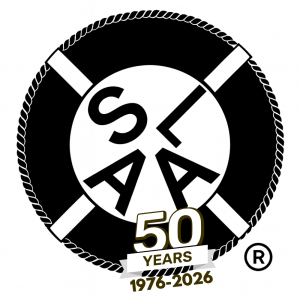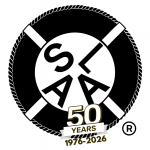Question: Is it within the traditions for our special workers (e.g. FWS staff) to spread the S.L.A.A. message by contacting professionals (e.g. therapists)? Is this in accordance with tradition 8 and step 12?
Contact with therapists and other professionals has been one of the most effective tools which I have seen in attracting those who are suffering with our disease. Tradition 8 reads- “S.L.A.A. should remain forever nonprofessional, but our service centers may employ special workers.” With these facts in mind, I personally do not see a conflict for the following reasons – The therapists are not a part of the program; therefore, there would be no conflict with the possibility of our attempting to be professional in dealing with potential members. Also the therapists are not employed as special workers since they receive no reimbursement from the Fellowship for their work. They can, however, be our greatest cheerleaders if we make them aware of our existence, and they are able to refer clients to the rooms of the program.
Tradition 12 says, “Anonymity is the spiritual foundation of all our traditions, ever reminding us to place principles before personalities.” I also do not see a conflict with this tradition, either. These outreach materials are sent out either by the Fellowship or the Local Intergroup; therefore, the professional does not know who is a member of the Fellowship. If a client were referred to the Program, the therapist would know about their attendance and involvement which would supplement the work that the client and therapist are doing in their sessions. And this is as it should be since the professional is in a need-to-know position as to what is happening with the client.
This, in fact, could uphold Tradition 11, “Our public relations policy is based on attraction rather than on promotion…” This would definitely be an additional means to attract new members to the Program, because if the one client is making progress and overcoming his/her illness, the therapist will be aware of this information and will feel much more comfortable in referring other possible members to the Fellowship. This would also uphold Tradition 5 “Each group has but one primary purpose – to carry its message to the sex and love addict who still suffers.” This is just another way of carrying the message. If people are unaware of us, they will not come, and they cannot recover.
My interpretation of the question is that the inquirer wants to know if it is consistent with the Traditions to contact professionals in order to distribute information to clients in order that the clients can get further information about SLAA and 12 Step recovery. That seems to be quite consistent with Tradition 5, spreading the message, and Tradition 11, attraction rather than promotion.
However, if the question is to contact professionals in order to promote or endorse each other as a referral base, then I believe that is contrary to Tradition 6 and 10, we have no opinion and do not endorse.
[T]he “Introduction to Sex and Love Addicts Anonymous” was the first piece of literature, and was written in order to do a mailing to therapists and judges, along with a simple sticker with the local Intergroup or group info number or even just a post office box number. This actually fits better into Step 12 than “attraction rather than promotion”, even though the message carrying is by way of giving therapists something to give clients who they think might identify with the problem. In earlier days AA also did this, and has pamphlets written specifically for “therapists and other professionals.” That pamphlet and some others are good ways to anonymously “attract” those who still suffer from this addiction. Placing the Basic Text in libraries has also been done, which accomplishes a similar purpose. There have been also volunteers who have told a bit of their stories, but remained anonymous, working in pairs, who have spoken at meetings of local therapists and law enforcement folk.
Several of us seem to have different interpretations of the question that is being asked. It appears to me that the inquirer might be concerned about FWS staff (who are not members of the fellowship) contacting therapists or other professionals and giving out information about a program to which they do not belong. I see no tradition violation with these special workers distributing conference approved literature. However, if the professionals have questions beyond logistics, I would hope that FWS staff members would refer them to a member of the S.L.A.A. program.


